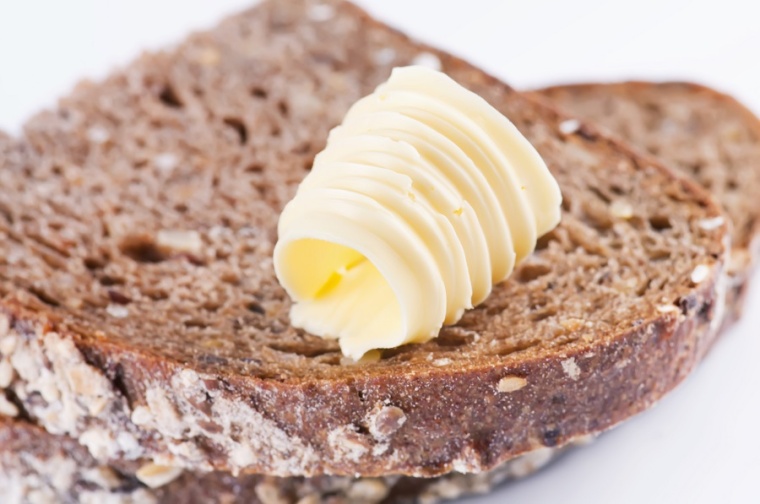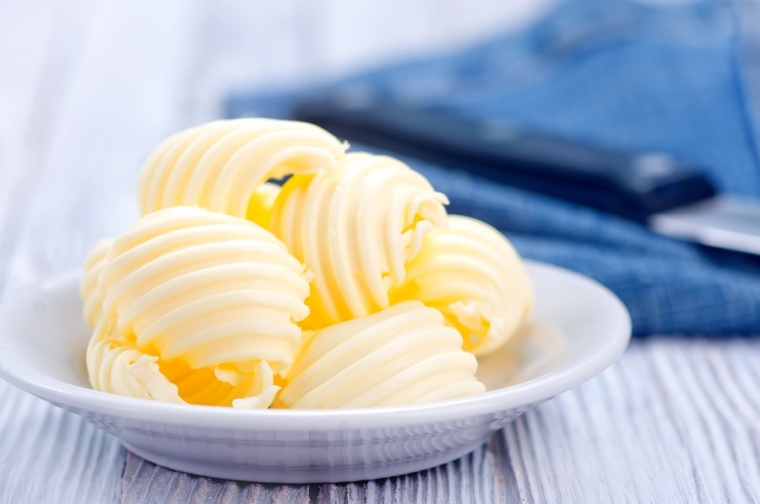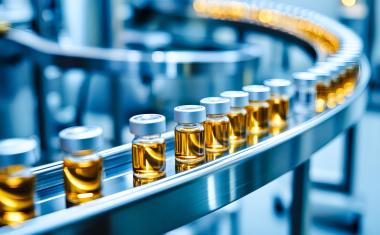The Use of Evonik’s Catalysts to Manufacture TFA-free Margarines
When manufacturing specialty edible fats, ensuring that the product has the desired properties – such as a stable shelf life, optimal melting behavior, and texture – is essential.

Previously, the partial hydrogenation of fats and oils has been used to produce margarines, cocoa butter alternatives, coating fats, bakery fats, vanaspati, ghee, and other specialty fats. However, this process not only changes some of the double bonds to single ones, but it also converts many of the remaining ones from the safe cis configuration to the unhealthy trans isomer, leading to unwanted trans fatty acids (TFA) – which are not good for human health.
As the health consequences of TFAs have become better known, alternative methods to produce specialty fats have been sought. An effective “zero TFA” solution is to use a combination of full hydrogenation and chemical interesterification. This approach delivers the desired end-product with the wanted special properties, minus TFAs. It changes the texture and increases the shelf life of the product, and offers a more practical, flexible, and cost-effective modification method for fats and oils.
Evonik is the one-stop supplier of catalysts for both hydrogenation and interesterification processes.

Modifying Fats and Oils
Hydrogenation and interesterification technologies complete each other. Used together, they create triglycerides which have a certain crystallography when they solidify, providing the perfect texture and qualities for margarines and specialty products.
The preferred form for a solidified fat is a stable beta prime phase, characterized by small needle crystals that create 3D structures capable of carrying large amounts of liquid oil in them. This is essential to produce spreadable margarines and many specialty fats used in the food industry.
Some fully hydrogenated oils (FHOs) form stable beta prime crystals without additional processing – such as palm oil and palm kernel oil – and these are suitable for certain specialty applications. However, this is not the case for all oils and products. Many types of edible products need to be produced by blending fully hydrogenated oils with refined unsaturated ones followed by interesterification, to achieve the desired melting and spreadability (a.k.a. plasticity) properties.
The main reasons for modifying fats and oils are:
- To improve their stability against oxidation for a longer shelf life
- To change their consistency and melting properties, for better functionality
- To replace an expensive imported fat or oil with modified cheaper local alternatives
- To create a product that does not already exist in nature.
Edible oils and fats are hydrogenated in the form of triglycerides to produce FHOs. This process converts highly unsaturated refined oils that are susceptible to air oxidation to stable products for use in edible formulations. The fatty acid chains of edible fats are made up of carbon atoms linked by single and double bonds. The more double bonds there are, the lower the melting temperature of the fat, and the more sensitive it is to atmospheric oxygen, which can attack these double bonds.
With partial hydrogenation, as the name implies, the catalyst reduces only some of the double bonds to single bonds while changing the orientation of some of the remaining ones from the safe cis configuration to the unwanted trans, thereby creating unhealthy TFAs. Conversely, full hydrogenation converts essentially all the double bonds into single ones to afford edible products classified as TFA-free. The result is a more viscous and solid FHO that is resistant to air oxidation and can be used as a stable hard stock for formulating specialty products, such as cocoa butter alternatives.
The use of Evonik’s Moncat 2021 catalyst for the full hydrogenation of fats and oils ensures a smooth, rapid reaction. Specially designed for the oil and fats industry, it is a ready-to-use activated nickel on silica catalyst embedded in hydrogenated vegetable oil. This catalyst enables the full and partial hydrogenation of triglycerides for oleochemical products, and it is also the catalyst of choice for the full hydrogenation of edible fats and oils to produce the TFA-free classified hard stocks mentioned above.
This is where interesterification comes in. FHOs can then be blended with unsaturated oils and chemically interesterified to produce TFA-free functional foods, with the desired melting and textural properties. Interesterification involves rearranging and redistributing saturated and unsaturated fatty acids along the glycerin backbone, most commonly using sodium methylate (NaOCH3); this is an essential catalyst in the interesterification process, used to improve margarine spreadability, for example. The powder form of sodium methylate is the preferred catalyst for the rapid interesterification of fats and oils under mild conditions with the lowest level of in-process oil losses.
This combined approach also offers manufacturers cost savings. It means expensive oils can be replaced with cheaper alternatives, such as canola, soybean, and sunflower oils, which can often be locally sourced. Moreover, it expands the availability of oils to include those that may be sensitive to air oxidation, thus offering more flexible supply chain options. In addition, the process enables manufacturers to create products that do not already exist in nature, opening up new possibilities and applications.
Overall, the combination of full hydrogenation and interesterification offers a practical, flexible, and cost-effective way to produce TFA-free specialty products. Evonik offers the right catalysts solutions for both processes.
Contact:
Suresh Parab
Global Head of Product Group OFC
Evonik Catalysts
Mobile: +91 9820294228
Email: suresh.parab@evonik.com
evonik.com/catalysts









